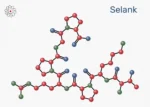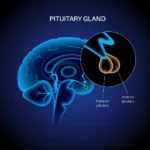AICAR’s Involvement in Insulin Resistance
Research study claims suggest that inflammation in adipose tissue might lead to alterations in insulin sensitivity. Research speculates that mitigating this inflammation may hypothetically enhance glucose metabolism and homeostasis without notable alterations in weight. AICAR, through unspecified pathways related to SIRT1 and macrophages, is speculated to have a role in reducing inflammation in adipose tissue. In research involving undisclosed diabetic and control mice, AICAR has been linked to a reduction in inflammatory responses by activating AMP kinase. This activation may potentially improve insulin sensitivity, energy homeostasis, lipid metabolism, and inflammatory markers.
Insights into Anti-Cancer Research and AICAR
AMPK’s conjectured impact on tumor growth and spread is presumed to be variable in different contexts. Supposedly, in certain instances, it might slow down tumor invasion, while in others, it might accentuate tumor growth. Some research implies that extended activation of the enzyme might hypothetically lead to cancer cell death by slowing cancer cell metabolism, rendering them more susceptible to environmental influences. Scientists are exploring the potential of AICAR peptides alongside other anticancer compounds to evaluate possible effectiveness against cancer cell proliferation.
AICAR Peptide and Anti-Inflammatory Action
The purported anti-inflammatory potential of AMPK activators have been the subject of exploration. AICAR, sharing potential metformin-like actions in various inflammatory conditions, is speculated to hold promise in autoimmune and inflammatory disorders. Studies in mice suggest that AICAR might decrease inflammation in colitis models. This anti-inflammatory potential may be attributed to its role as a central inhibitor of immune responses, potentially reducing nuclear factor kappa B (NF-κB) activation in macrophages and certain cytokines.
AICAR Peptide and the Heart
Inflammation of cardiovascular tissue is presumed to be the primary pathology in numerous heart diseases, including atherosclerosis. Inflammation and vascular smooth muscle proliferation may be critical factors in the failure of stent placement and other cardiovascular conditions. Therefore, controlling vascular inflammation may hypothetically reduce both short-term and long-term complications of stent placement without resorting to alternative compounds that might increase bleeding risk.
The main hypothesis that researchers hold for the AICAR peptide is that via AMPK activation, the peptide may potentially suppress specific immune responses assumed to lead to atherosclerosis. In this scenario, AICAR might mitigate the supposed risk of developing atherosclerotic plaques resulting from macrophage proliferation, hypothetically reducing the prevalence of heart diseases.
Disclaimer: The products mentioned are not intended for human or animal consumption. Research chemicals are intended solely for laboratory experimentation and/or in-vitro testing. Bodily introduction of any sort is strictly prohibited by law. All purchases are limited to licensed researchers and/or qualified professionals. All information shared in this article is for educational purposes only.






